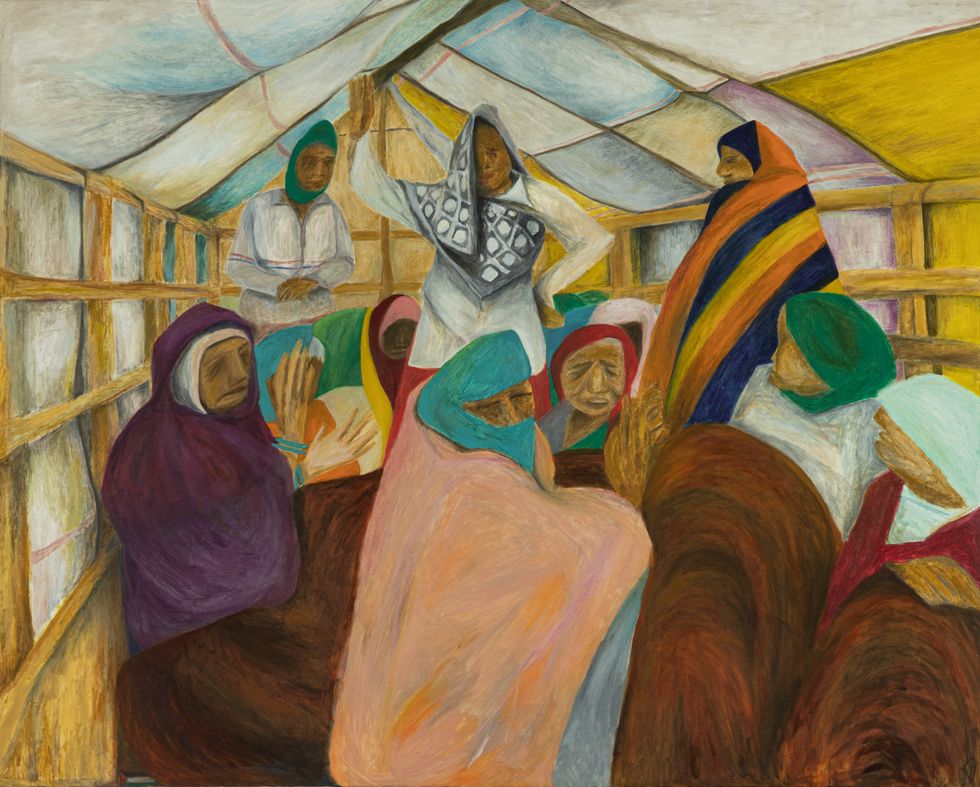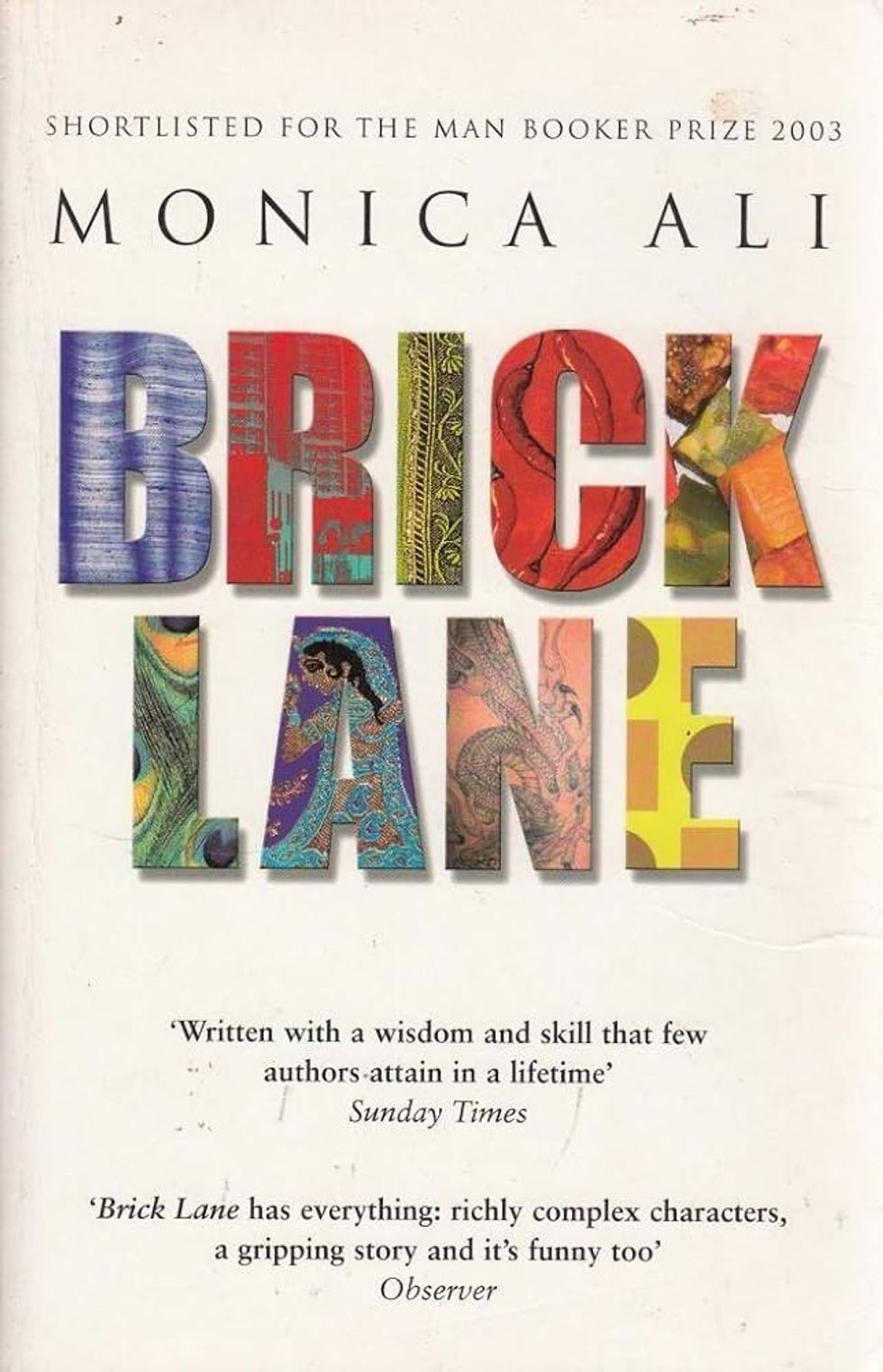THESE are halcyon days for black theatre audiences, with Oscar Wilde’s The Importance of Being Earnest at the National and The Purists at the Kiln in Kilburn, celebrating diversity.
To get to the Lyttelton Theatre at the National, I travelled on London Overland, which has been freshly christened the “Windrush Line” after the ship that brought immigrants from Jamaica to British shores in 1948.
Nearly eight decades on, black artists are making their mark in the arts, with significant strides in diverse casting. This progress also inspires hope that, in time, more leading roles will feature British Asian actors.
At the moment, other than in plays such as Tanika Gupta’s A Tupperware of Ashes, British Asian actors are struggling to find their footing in mainstream theatre. Perhaps the goodies should be shared around a bit more.
Given that The Importance of Being Earnest, “a trivial comedy for serious people”, is about cucumber sandwiches, snobbery, class, society and the marriage market, it would have been a perfect fit in a British Asian milieu. I thought of Mrs Rupa Mehra in Vikram Seth’s A Suitable Boy when she tells her daughter Lata in the opening line of the blockbuster novel: “You too will marry a boy I choose.”
I recall reading many anecdotes about Wilde. Asked by an American company whether they could change his play a little, he apparently sent back a telegram: “Who am I to tamper with a masterpiece?” For those familiar with The Importance of Being Earnest, it is a joy to hear some the wittiest one liners in English literature. For those coming across it for the first time, there were gasps of shocked laughter.
Many of the key roles in this joyous production, directed by Max Webster, have gone to black actors. Ncuti Gatwa, the current Dr Who on television, the 15th in line, camps up the role of Algernon Moncrieff, a young man about town. He is an apparition in pink playing the piano as the play opens. His demeanour suggests he is more than happy to be bisexual. The whole concept seems utterly reasonable, given Wilde’s homosexuality earned him both notoriety and a spell in prison. It is worth remembering The Importance of Being Earnest first opened in 1895, with Wilde poking fun at Victorian values.
The splendidly attired Sharon D Clarke has been cast as Lady Bracknell, one of the greatest characters in English comedy. Dressed in vivid yellow, she veers between a haughty English aristocratic lady and an imperious West Indian mum.
Ronke Adékoluejo, an English actress of Nigerian ancestry, has been cast as her daughter, Gwendolen Fairfax.
The confusion in the tale arises from Algernon and his friend Jack Worthing adopting double identities. Algernon invents Mr Bunbury, a sick man he visits in the country when he is “Earnest.” In the play’s sexual context, “Bunburying” gains a double meaning.
A gentleman of wealth and property, Jack leads a double life. In the city, he goes by the name Ernest Worthing, while in the countryside, he is Jack. He is deeply in love with Gwendolen. However, his tangled web of lies threatens to unravel as the play progresses.
The famous “handbag” scene comes up when Lady Bracknell, who is Algernon’s “Aunt Agatha” – a touch of PG Wodehouse here – quizzes Jack on his pedigree after he declares his wish to marry Gwendolen. Lady Bracknell sounds exactly like Mrs Rupa Mehra when she discovers Jack proposing to Gwendolen.
She admonishes her daughter in no uncertain terms: “Pardon me, you are not engaged to anyone. When you do become engaged to someone, I, or your father, will inform you of the fact. An engagement should come on a young girl as a surprise, pleasant or unpleasant, as the case may be. It is hardly a matter that she could be allowed to arrange for herself….and now I have a few questions to put to you, Mr Worthing.” Her daughter is banished to the waiting carriage.
Getting out her pocket notebook and pencil, she finds his name is not on her list of eligible young men.
“Do you smoke?” she asks him. “Well, yes, I must admit I smoke,” Jack replies.
Lady Bracknell is pleased: “I am glad to hear it. A man should always have an occupation of some kind. There are far too many idle men in London, as it is.”
He also admits: “I know nothing, Lady Bracknell.” Again, she approves: “I am pleased to hear it. I do not approve of anything that tampers with natural ignorance. Ignorance is like a delicate exotic fruit; touch it and the bloom is gone.”
Then comes the exchange at the heart of the play – and Clarke, as Lady Bracknell, rises to the challenge. She does not quite steal the show from Gatwa, but it is a close run thing.
“Now, to minor matters,” says Lady Bracknell. “Who are you parents?” Jack reveals: “I have lost both my parents.” She produces one of her memorable lines: “To lose one parent, Mr Worthing, may be regarded as a misfortune; to lose both looks like carelessness.”
Then his story comes tumbling out. He was found by the late Mr Thomas Cardew, an old gentleman of a very charitable and kindly disposition, who gave him the name Worthing “because he happened to have a first-class ticket for Worthing in his pocket at the time”.
She wants to know where Mr Cardew found him.
Jack (gravely): “In a handbag.”
Lady Bracknell: “A hand-bag?
” Jack (very seriously): “Yes, Lady Bracknell. I was in a handbag – a somewhat large, black leather handbag, with handles to it – an ordinary handbag, in fact.” The handbag, given to the old man by mistake for his own, was in the cloakroom at Victoria station, “the Brighton line.” “The line is immaterial,” she scolds him. The proposed engagement is off – unless he can “produce at any rate one parent, of either sex, before the season is quite over”.
The cast of The PuristsIn the end, the mystery is resolved. The handbag had belonged to Miss Prism (Amanda Lawrence), governess to Jack’s ward in the country, Cecily Cardew (Eliza Scanlen).
Cecily is a charming young woman with a penchant for romantic fantasies. She falls deeply in love with the idea of Ernest before even meeting him, setting the stage for a series of comedic misunderstandings with Algernon. The latter arrives uninvited at Jack’s country home, claiming to be Algernon’s brother, Earnest. This is problematic because Jack has turned up in black to mourn the death of his brother from a severe cold in Paris.
But all ends happily when Jack discovers his true percentage. The finale, with the cast parading across the stage in colourful feathers, appears to have been inspired by the Notting Hill Carnival.
At the Kiln, meanwhile, The Purists, by Dan McCabe, is directed by Amit Sharma, who has succeeded Indhu Rubasingham as the theatre’s artistic director. The play is a brave choice since The Purists, set in the world of rap music, will probably appeal best to a niche audience.
The action, with excellent performances, takes place in a stoop in Queens, New York. Lamont Born Cipher (Sule Rimi), a legendary emcee, and Mr Bugz (Richard Pepple), a fall of fame DJ, have been winding up Gerry Brinsler (Jasper Britton), a white music lover. He says he hates white folk who attempt rap. But when two young women, Nancy Reinstein (Emma Kingston) and Val Kano (Tiffany Gray), put their rap battling skills to the test, all are forced to confront their convictions on race, sexuality and music.
n The Importance of Being Earnest is at the National Theatre until January 25, 2025. The Purists plays at the Kiln Theatre until December 21, 2024.


















 Manmeet K Walia
Manmeet K Walia Salima Hashmi
Salima Hashmi Tikri Border, Haryana-Delhi by Aban Raza
Tikri Border, Haryana-Delhi by Aban Raza


 Her book
Her book